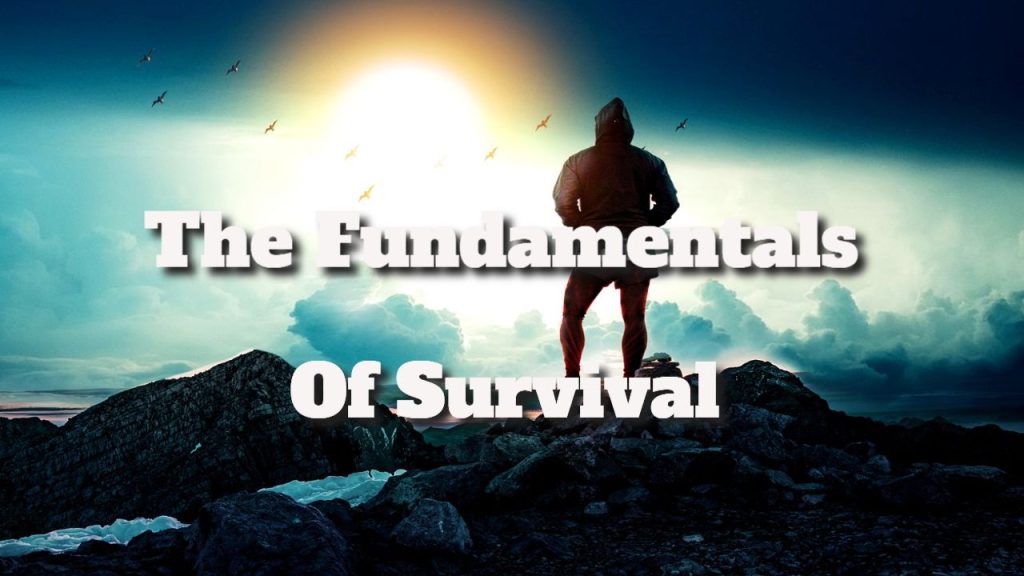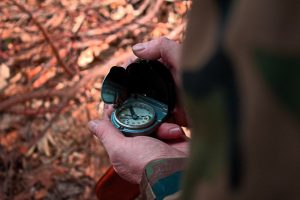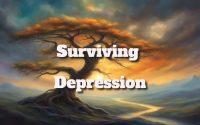Everyone Should Know The Fundamentals Of Survival
Everyone Should Know The Fundamentals Of Survival
Everyone should have some essential survival skills, regardless of the type of emergency or natural disaster they find themselves in.
Read through the list, tick down what you know how to perform and what materials you have on hand if necessary, and then concentrate on the remaining abilities. These few fundamental abilities will come in helpful throughout your life.
Water Discovery And Treatment
Finding a clean water source is one of the first things you’ll need to do in an emergency. It’s astonishing how frequently this becomes a problem after severe storms, power outages, and other similar events.
If you anticipate a natural disaster, stockpile at least a half litre of drinking water per person for at least three days.
It’s also a good idea to purchase and learn how to utilize a small water purifier. Look for natural water sources in your neighbourhood that you may use if your running water goes out.
Make a Fire
Another helpful skill is the ability to start a fire. You can cook over fire since it provides warmth and light. Start practising by recalling your time in the Boy Scouts or watching a YouTube video. It is not difficult to build a fire, but it is a talent that should be taught.
After that, you can try several methods to create a flame without a match or lighter and get damp wood to burn.
Make a Shelter
Hopefully, you will not need to build a shelter because you are in the woods or your house has been damaged.
But, it’s a good idea to become acquainted with a few different ways to construct a shelter using materials found in your area.
Begin with simple shelters built of twine and a tarp, then progress to more complex skills using only natural materials such as sticks, branches, trees, and leaves.
Learn basic first aid.
If a storm hits your neighbourhood, you or someone near you could be wounded by flying debris or something similar. Learn the fundamentals of first aid, obtain a solid first aid kit, and learn how to use the individual components in your kit. This will allow you to care for yourself and your family until medical assistance arrives.
Food Procurement and Preparation
Stocking up on staple foods before a hurricane or other natural disaster is usually a good idea.
Stock up on ready-to-eat foods and ensure that you can open cans, extract food, and, if possible, heat and cook it.
Next, become acquainted with the edible items available in your area and where to find them. You’re unlikely to need your foraging abilities to survive, but it’s entertaining and provides you and your family something to do while you wait for rescue.
Requesting Assistance
Ensure you can summon assistance without a cell phone and have some essential equipment. You’ll need a torch and a mirror, at the absolute least. For example, markers, tape, and other items used to write messages on your house’s roof are also handy.
You will be well on your way to surviving a disaster if you learn and practise these abilities. Of course, most of these abilities will be helpful on your next camping trip.
Prepare your community for natural calamities.
Natural catastrophes occur worldwide, and no matter where you live, you will most certainly be affected by numerous of them during your lifetime.
Depending on where you live, they may occur or threaten your home considerably more regularly. It’s easy to see why being prepared for such disasters is critical.
Before taking any action, it is essential to familiarise yourself with the potential local catastrophes and disasters. Fires can affect us all, and winter storms that shut down roads and electricity lines are also possible across the country.
Then, it is determined by where you live. Your city may be vulnerable to flooding, tornadoes, hurricanes, typhoons, earthquakes, and other natural disasters. Do your homework, keep up with the news, chat with your neighbours, and learn about the natural calamities for which you should be prepared.
Your local government, mainly the emergency services, is a valuable source of information. Many of them can not only warn you of potential threats but also provide pamphlets, plans, and other resources to assist you in preparing for any situation.
You must understand how to respond to natural disasters once you know what to expect where you live. Will you be able to stay in your home, or will you have to evacuate? Are there any emergency shelters or evacuation routes you should know?
Once you understand the fundamentals, devise a plan to secure your home, yard, and cars based on the calamity.
What can you do to give your property the best chance of surviving the disaster? Having sandbags on hand can be helpful if you live in a flood-prone location. Again, it heavily depends on where you reside and the type of natural disaster you are dealing with.
You should always have food, drink, medicine, a first aid kit, a lamp, a radio, and some tools in an emergency. In an emergency, every household should have a well-organized emergency kit that is immediately accessible.
Learn about potential hazards as soon as possible so you can prepare. Set up cell phone notifications, sign up for local emergency emails, and stay updated on news and social media if you believe a disaster is coming.
The sooner you find out, the better you can respond and prepare. Pay attention to local authorities and, if necessary, evacuate. People cannot be replaced, but things can.
Make a Simple Emergency Kit.
Do you have a basic first-aid kit? Governments are urging citizens to prepare for increasingly common natural and artificial disasters. Your essential kit should include everything you need to survive for a few days or until help arrives.
Water that can be consumed
Dehydration is among the first to cause problems in any crisis or emergency. Make sure you have enough safe drinking water for several days. A simple water filtration device that you can use to expand your drinking water supply in the event of dangerous water sources is a smart alternative or enhancement.
Food and accoutrements
Next, have at least a few emergency food rations on hand. This is especially crucial if you have young children, pregnant or breastfeeding women, the elderly, or members of your household who have diabetes or low blood sugar.
They can survive on food for even less time than you can. Keep some easy, ready-to-eat meals available, such as granola bars, nuts, and canned goods. Ascertain you have all the equipment or resources required to open food containers and eat.
In an emergency, prioritize foods that will not spoil rapidly and can be consumed cold. The power will most likely go out, leaving you with no way to cook or reheat the food you wish to consume.
Cell phone, Radio and Torch
Then, there are hand-operated miniature electronic or electrical devices. You must be able to obtain the necessary information and see where you are heading.
A good torch with a long battery life and a tiny weather radio are essential. This can be battery-powered or manually operated. If you utilize battery-powered gadgets, always keep a spare pair of batteries in your pack.
Last but not least, bring your phone and charger with you in the event of a calamity. You want to be able to contact your loved ones as soon as possible.
First-aid Supplies
A modest first-aid kit with bandages, alcohol wipes, plasters, scissors, and primary pain relievers is also recommended. Make sure it includes any medications you take daily. If you have family members who have severe allergies, antihistamines or even an epi-pen can be a life-saving addition.
Various Instruments
In an emergency, a variety of tools can be beneficial. A decent knife is essential and can be handy in various situations. If you need to turn off utilities in an emergency, a wrench or pliers will come in helpful. Finally, have a whistle and a flashing light or flare in your toolbox to notify rescue workers of your position.
Managing prolonged power outages
Extended power outages are one of the most severe issues in a natural catastrophe. It’s a good idea to think about and plan for extended periods without power, regardless of where you live or what circumstances you may face.
Sources of alternative energy
If you can prepare for a power outage, you should first charge your phone and any mobile gadgets. It’s also an excellent time to stock up on batteries, acquire a small battery-powered power bank, and consider purchasing a generator.
Another excellent option for alternative energy is candles, as well as stoves or fireplaces that burn wood, offering light and warmth and the capacity to warm up and cook meals in the event of a fireplace or stove.
Carrying numerous flashlights and spare batteries is always a brilliant idea. It would help if you also carried a small, battery-powered radio to keep up with news and weather forecasts while the power is out.
If you have a generator, ensure you understand how it works, have enough fuel, and always run it outside.
Food storage and preparation without power
If the power outage is brief for a few hours, close your refrigerator, and you’ll be good. If the power outage lasts longer, eat perishable food first. Get as much done as you can using a camping stove or grill, then throw out the leftovers.
Keep your freezer wholly closed and, if feasible, provide extra insulation by draping thick blankets or comforters over it.
When you run out of fresh food, begin defrosting, cooking, and eating frozen food. Keep the freezer compartment as closed as possible to keep cold air trapped inside and food fresher for longer.
You may cook and grill outside using a charcoal or gas grill. If you have camping gear, bring out the propane burner and cook on it. If neither option is available, cooking over a small fire is always an alternative. Cooking inside increases the risk of carbon monoxide poisoning and house fires.
Keeping warm or cold in the absence of electricity
Staying warm or cool without electricity can be difficult during prolonged power outages. Early insulation of your home can have a significant effect. Close the shutters and drapes as much as possible to keep the heat or cool air in.
Use the sun and outdoor temps to manage the temperature in your home during the day or night. Dress accordingly by wrapping up in multiple warm layers and a thick blanket or wearing as little as possible.
It can be beneficial to provide a calm wind in hot weather. Stay hydrated (either warm or as cool as possible) when you’re out in the cold, and eat a high-calorie diet.





